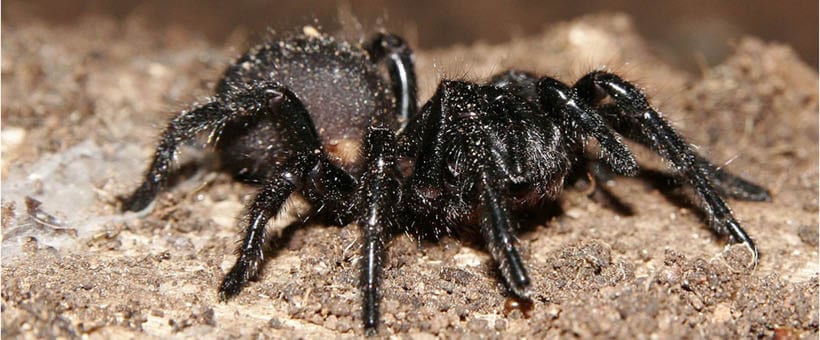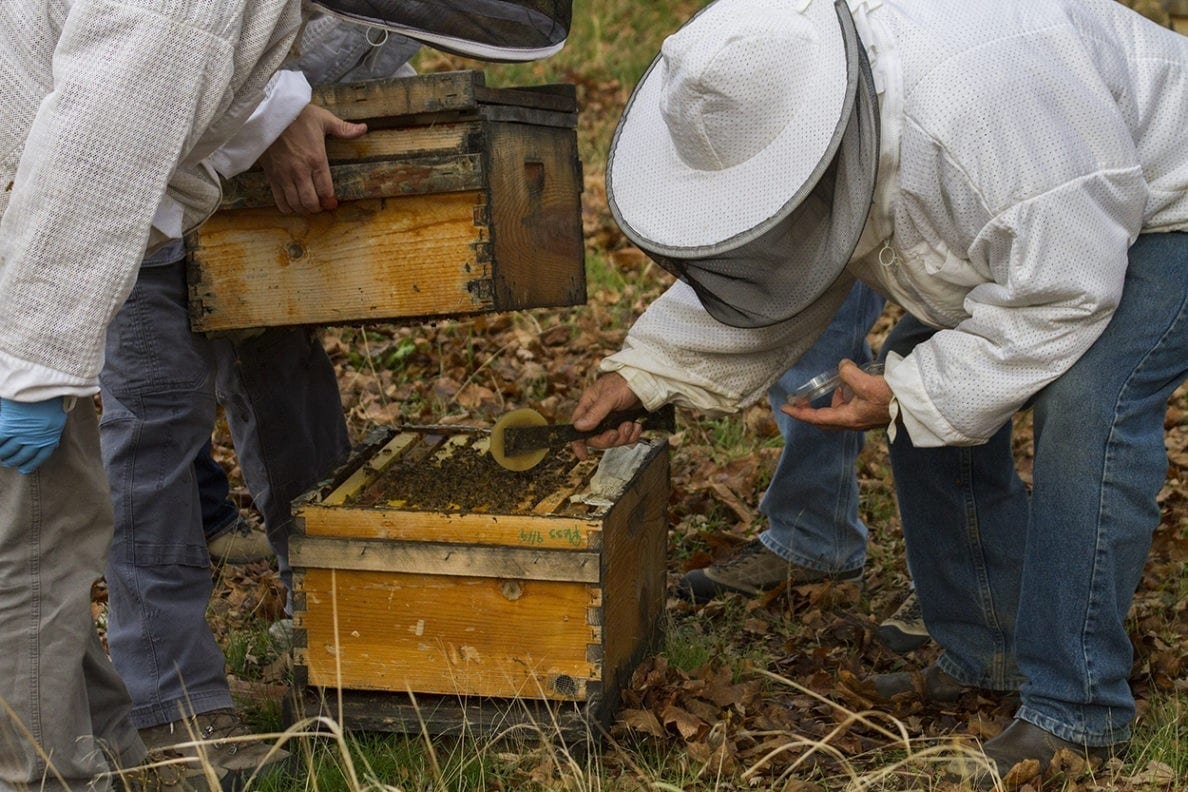
An international study has discovered that a compound extracted from the Australian funnel-web spider is highly effective at killing melanoma cells, as well as cells taken from facial tumours on Tasmanian devils.
It is believed to be the first time the spider-derived peptide has been found to have anti-cancer properties in melanoma and Devil Facial Tumour Disease (DFTD) cells. The findings mean the compound could potentially become the basis for a new treatment for DFTD and melanoma in future.
The study was led by QIMR Berghofer researchers Dr Maria Ikonomopoulou and Dr Manuel A. Fernandez-Rojo, along with collaborators from the Institute for Molecular Bioscience at the University of Queensland.
The researchers tested the peptide – which is very similar to the known Gomesin peptide from the Brazilian spider Acanthoscurria gomesiana – in a series of laboratory experiments.
Dr Maria Ikonomopoulou, who led the study, said the early results were very promising.
“We decided to test this spider compound because it was very similar in chemical composition to a compound from a Brazilian spider, which was already known to have anti-cancer properties although it had never been tested in devil facial tumour cells,” Dr Ikonomopoulou said.
“In our laboratory experiments we found that the Australian funnel-web spider peptide was better at killing melanoma cancer cells and stopping them from spreading than the Brazilian spider peptide. Additionally, the Australian spider peptide did not have a toxic effect on healthy skin cells.
“When we tested the Australian spider peptide on human melanoma cells in the laboratory, it killed the majority of them. We also found the peptide slowed the growth of melanomas in mice.”
Dr Ikonomopoulou and Dr Fernandez-Rojo also tested the compound on cells taken from facial tumours on Tasmanian devils.
“Similar to the effect in melanoma cells, we found that the Australian spider peptide killed the DFTD cells, but didn’t affect the healthy cells as much,” she said.
“We also experimented with different versions of the compound to try to find which one would be best at killing the DFTD cells,” she said.
“When we altered two particular amino acids in the peptide chain, the compound became even better at destroying the DFTD cells”.
“This research is still at a very early stage, but these results are very promising. There are many years of work ahead, but we hope that this compound could in the future be developed into a new treatment for melanoma and DFTD.
“These findings prompt us to continue investigating the potential of bioactive compounds derived from venom to treat melanoma, liver diseases, obesity and metabolism, as well as against the Tasmanian devil tumors in collaboration with the biopharmaceutical industry.”
Learn more: STUDY FINDS THAT SPIDER PEPTIDE SLOWS MELANOMA GROWTH
The Latest on: Spider peptide
[google_news title=”” keyword=”spider peptide” num_posts=”10″ blurb_length=”0″ show_thumb=”left”]
via Google News
The Latest on: Spider peptide
- Spider-Man: Across the Spider-Verse is over two hours longon May 3, 2024 at 5:01 pm
Providing the runtime doesn’t change prior to the film’s release, Across the Spider-Verse will be the 22nd longest animated movie of all time. It will be tied with four other 136-minute-long ...
- They swim and they spin: Meet the aquatic spiderson May 2, 2024 at 5:00 am
Some make nests inside seashells, others tote bubbles of air on their backs. The spiders that went back to water evolved lots of slick survival strategies. By Amber Dance/Knowable Magazine ...
- How to Watch Spider-Man: Across the Spider-Verse – Where to Stream Online in 2024on April 29, 2024 at 5:00 am
Four and a half years after Into the Spider-Verse first hit theaters, Sony has returned to the Marvel multiverse for another animated adventure. IGN's Spider-Man: Across the Spider-Verse review ...
- Grounded: How To Defeat Spiderson April 23, 2024 at 5:15 pm
Spiders are one of the most ferocious and terrifying enemies in Grounded, and here's how players can defeat each one of them. Your browser does not support the video ...
- Peptide-Based Bioinsecticide Receives Emergency Use Authorization in Italy for Control of Tomato Leafminer Infestationson April 22, 2024 at 8:50 am
Based on peptides from spider venom, SPEAR LEP from Vestaron has a unique MoA and is the first product of its class in Europe.
- Soy, skim … spider. Are any of these technically milk?on April 22, 2024 at 8:35 am
You’ll find most of these types of milk in your grocery store. But are they all truly milk—and what is the true nature of milk anyway? We asked experts.
- Italy is the Second European Country to Issue Emergency Use Authorization for Vestaron Peptide-Based Bioinsecticide for Control of Tomato Leafmineron April 22, 2024 at 5:00 am
European access follows significant market growth in US specialty cropsDurham, North Carolina, April 22, 2024 (GLOBE NEWSWIRE) -- Italy becomes the second country in the European Union to grant ...
- The 30 Best Spider-Man Villains of All Time, Rankedon April 16, 2024 at 3:45 pm
From Kingpin to the Green Goblin, these fantastic Marvel villains have given Spider-Man plenty to think about over the years. Since his creation some six decades ago, Spider-Man has gone on to ...
- Spider-Man: Beyond the Spider-Verse could be released next year, at least according to a musician working on the filmon April 15, 2024 at 5:00 pm
Musician d4vd has teased they could be involved in Spider-Man: Beyond the Spider-Verse, and that it might even be released next year. The singer, who recently appeared on the Invincible soundtrack ...
via Bing News










